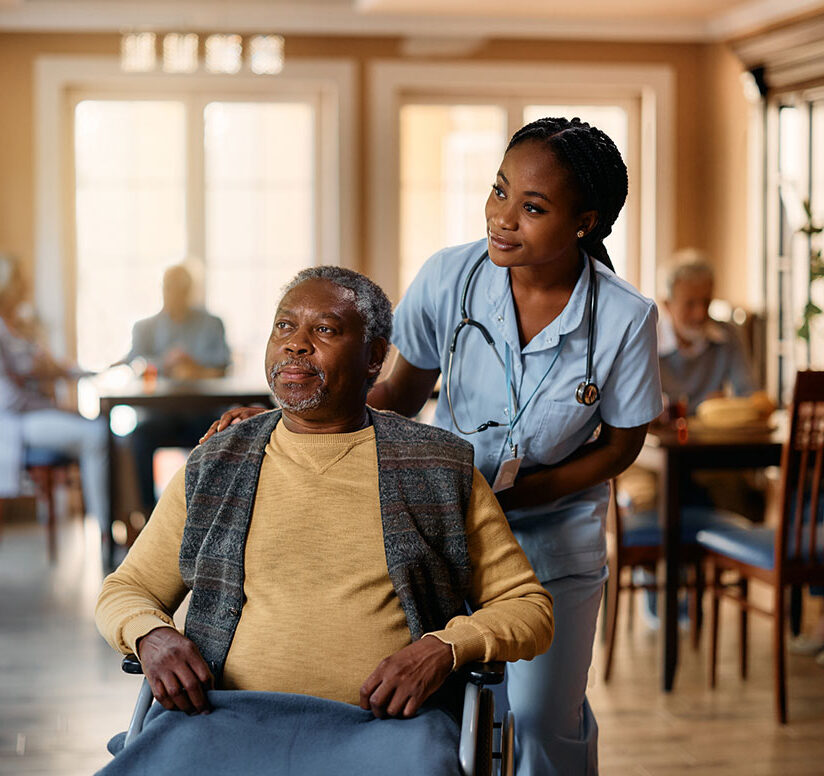CDC Updates Quarantine Guidance Related to Vaccination Status
Centers for Disease Control & Prevention (CDC) updated quarantine recommendations for vaccinated individuals on February 10, 2021. These updates are consistent with quarantine recommendations for individuals who have recovered from COVID-19 in the past 90 days and do not apply to individuals in a healthcare setting, such as those living in a nursing home.
General Quarantine Guidance for Vaccinated Individuals (Not Individuals Living in a Healthcare Setting)
Current CDC guidance states that individuals who have been exposed to COVID-19 through close contact with an individual with confirmed or suspected COVID-19 should quarantine for a period of 14 days following the last contact and monitor for symptoms of COVID-19. Individuals who have tested positive for and recovered from COVID-19 in the past 90 days do not need to quarantine, provided they do not develop new symptoms.
The February 10 updates state that individuals who have been fully vaccinated – that is, 2 weeks or more have passed since the second dose in a 2-dose vaccine series or the first dose in a 1-dose vaccine series – will also not be required to quarantine following exposure, provided the vaccinated individual is within 3 months from the last dose in the vaccine series and does not develop new symptoms of COVID-19. This guidance aligns with the quarantine guidance for individuals with natural immunity as a result of recovery from COVID-19 illness.
CDC cautions that these changes are not meant to indicate that the vaccine prevents virus transmission. Information about the impact of vaccination on transmissibility is still limited. However, symptomatic and pre-symptomatic transmission is thought to play a greater role in transmission than asymptomatic transmission. Given that the COVID-19 vaccine has been proven effective at preventing severe and symptomatic COVID-19 illness, it is thought that the benefits of shortening quarantine for vaccinated individuals who have been exposed outweigh the risks of these individuals transmitting virus to others.
All individuals, regardless of vaccination status, should continue to practice mitigation measures such as masking, social distancing, hand hygiene, and staying home if sick. Additionally, despite the new quarantine guidance, fully vaccinated individuals who have been exposed to COVID-19 should monitor for symptoms for 14 days following exposure and should be evaluated for COVID-19 should symptoms develop.
What This Means for Our Members
As noted above, this guidance is for individuals in the general population and not intended for those living in healthcare settings. The above guidance may be applied to fully-vaccinated healthcare personnel with high-risk exposure to mitigate staffing shortages; however, we recommend consulting state/local public health officials for guidance on these exceptions. Guidance for determining what constitutes a high-risk exposure is available here. Information on strategies to mitigate staffing shortages are available here. Decisions to implement contingency and crisis capacity strategies for mitigating staffing shortages must be made in consultation with state/local public health.
Fully-vaccinated individuals living in a healthcare setting (including nursing homes, assisted living, in-patient hospice) should continue to follow guidance to quarantine for 14 days following exposure due to certain risk factors such as higher risk of severe disease and death and challenges with social distancing. For our members serving individuals in other settings including independent living (including independent living on the campus of a Life Plan Community), senior housing, adult day, or home health, the newly updated quarantine guidance could be utilized; however, CDC recommmends that a more conservative approach (i.e. full 14-day quarantine) be utilized when serving higher-risk adults with multiple comorbidities.

Most Recommended
October 15, 2025
 Shutdown Week Three: Impact of Ongoing Closure on Affordable Housing
Shutdown Week Three: Impact of Ongoing Closure on Affordable Housing
December 10, 2025
Fiscal Year (FY) Funding 2026
October 07, 2025
Immigrant Workforce Matching Program Brings Workforce Relief
Recently Added
December 17, 2025
 Colleagues on the Move, December 17, 2025
Colleagues on the Move, December 17, 2025
December 16, 2025



